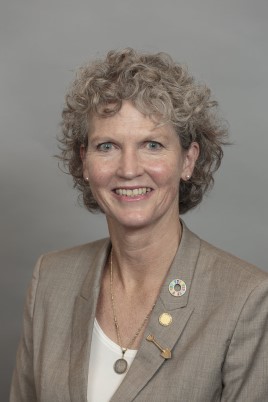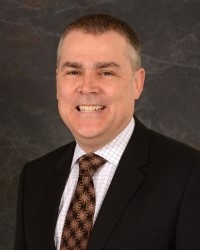Workforce development remains one of WEF’s top priorities, and as we continue to deliver on our commitment to water professionals, we are also working to make sure that the water workforce of the future is one that reflects the diversity of the communities we serve.
As the conversation around diversity, equity and inclusion magnified after the police killing of George Floyd and others, WEF reaffirmed its commitment to leading the transformation in the water sector. But first we looked inward, examining WEF with critical eyes and determined minds. We decided that we must change internally before turning our focus outward.
As the next step in our journey toward becoming as a fully diverse, inclusive, and equitable water organization, WEF's Board of Trustees has established a Diversity, Equity and Inclusion Subcommittee to provide guidance on our programs, communications, and membership. In August we hired The Silverene Group to work with the subcommittee to develop a strategic plan for diversity, equity and inclusion. Together, they will assess WEF’s current status and explore ways to ensure diversity, equity and inclusion is fully and permanently integrated into WEF’s culture.
The 15 dynamic water professionals serving on the subcommittee represent the diverse perspectives and experiences that we hope to see more of within WEF and the water sector as a whole. This group will play a critical role as WEF works to achieve its strategic goals and we appreciate each member’s leadership and commitment to creating meaningful change. We are looking to WEF members to be an active part of this change, and the subcommittee will be asking for input in a variety of ways, including interviews, surveys and focus groups. You will hear more from the members of the subcommittee throughout the year as their work progresses, but you don’t have to wait. If you have thoughts, suggestions or experiences that you would like to share, please reach out to either of us, or to an individual subcommittee member. This work will be strengthened in working together.
WEF Diversity, Equity and Inclusion Board Subcommittee
•Co-chair: Donnell Duncan, Arcadis
•Co-chair: Megan Yoo Schneider, Seven Management and Consulting
•Howard Carter, WEF Board of Trustees
•Laura Childs, WEF staff
•Ralph Exton, Suez
•Melody Gonzalez, Black & Veatch
•Steve Hamai, Seattle Public Utilities
•Rahkia Nance, WEF staff
•Aisha Niang, Houston Public Works
•Paige Peters, Marquette University/Rapid Radicals
•Karyn Riley, Washington Suburban Sanitary Commission
•Elaine Samuel, Eng Girl Problems
•Stephen Sanders, SUNY Morrisville
•Jeseth Delgado Vela, Howard University
•Ifetayo Venner, WEF Board of Trustees
Many of us want to be part of the solution but struggle with where to start. An excellent step is to read or listen to a book that brings a new perspective. Here are a few that we’ve found to be helpful in our own journeys:
The Color of Water by James McBride
White Fragility by Robin DiAngelo
The Autobiography of Malcolm X
Braiding Sweetgrass by Robin Wall Kimmerer
The Vanishing Half by Brit Bennett
Anatomy of Injustice: A Murder Case Gone Wrong by Raymond Bonner
Snow Falling on Cedars by David Guterson
So You Want to Talk About Race by Ijeoma Oluo


 Lynn Broaddus, Ph.D, M.B.A. is the 2020-2021 president of the Water Environment Federation (WEF), an international organization of water quality professionals headquartered in Alexandria, Va.
Lynn Broaddus, Ph.D, M.B.A. is the 2020-2021 president of the Water Environment Federation (WEF), an international organization of water quality professionals headquartered in Alexandria, Va. Walt Marlowe, P.E., CAE is the Executive Director of the Water Environment Federation (WEF), an international organization of more than 30,000 water quality professionals headquartered in Alexandria, Va. Before joining WEF, Marlowe was the Executive Director of the American Association of Pharmaceutical Scientists and was previously the Executive Director of the Construction Specifications Institute and the Executive Director of the American Academy of Water Resources Engineers. He has a B.E. in Civil Engineering from Stevens Institute of Engineering and an MBA from George Washington University.
Walt Marlowe, P.E., CAE is the Executive Director of the Water Environment Federation (WEF), an international organization of more than 30,000 water quality professionals headquartered in Alexandria, Va. Before joining WEF, Marlowe was the Executive Director of the American Association of Pharmaceutical Scientists and was previously the Executive Director of the Construction Specifications Institute and the Executive Director of the American Academy of Water Resources Engineers. He has a B.E. in Civil Engineering from Stevens Institute of Engineering and an MBA from George Washington University.